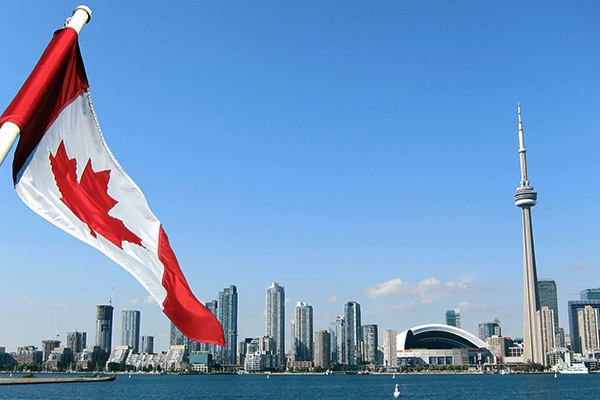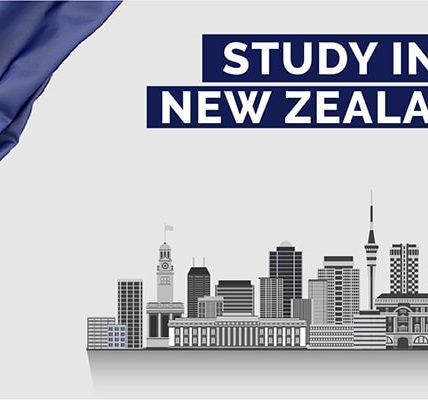Canada Visa Requirements – Canada is one of the most popular destinations for international students, thanks to its world-class universities, diverse culture, high standard of living, and welcoming environment.
Each year, hundreds of thousands of students from around the world choose to pursue their education in Canada. However, before embarking on an academic journey in Canada, one of the most important steps is to understand and fulfill the visa requirements.
This article provides a comprehensive guide to Canada’s student visa requirements, including the necessary documentation, eligibility criteria, and the application process.
Understanding the Canada Student Visa
A Canada student visa (also known as a study permit) is an official document issued by the Government of Canada that allows international students to study at designated learning institutions (DLIs) in Canada.
While it is not a traditional visa, a study permit serves as an entry permit for students who wish to study in Canada for a period of six months or more.
Students who wish to study in Canada for less than six months typically do not require a study permit, although they may need a visitor visa or an Electronic Travel Authorization (eTA), depending on their nationality.
Key Differences: Study Permit vs. Visitor Visa
- Study Permit: This permit is required for international students who plan to study in Canada for more than six months. It allows students to live and study in Canada, and it often permits limited work opportunities while studying.
- Visitor Visa: If you plan to study in Canada for less than six months, you typically need a visitor visa. This visa allows you to stay in Canada temporarily for tourism, business, or family visits, and it is not suitable for those who wish to pursue formal education for extended periods.
- eTA (Electronic Travel Authorization): Citizens from certain countries who are traveling to Canada by air may need an eTA. This is an online travel authorization that is easier to apply for than a visa but is only applicable to those visiting for short-term stays (tourism or business purposes).
Eligibility Requirements for a Canada Student Visa
Before you can apply for a Canadian student visa, you must meet several eligibility requirements. These requirements ensure that you are ready to study in Canada and will comply with Canadian immigration rules.
1. Acceptance by a Designated Learning Institution (DLI)
One of the most crucial steps in the visa application process is obtaining an acceptance letter from a Designated Learning Institution (DLI) in Canada. DLIs are universities, colleges, and other institutions that are recognized by the Canadian government to accept international students. You must apply and be accepted by a DLI before applying for a student visa.
2. Proof of Sufficient Funds
The Canadian government requires that international students demonstrate they have enough money to cover their tuition fees, living expenses, and return transportation. The specific financial requirements will vary depending on where you plan to study and the duration of your stay.
As of recent guidelines, the minimum financial requirements are:
- Tuition fees for one year of study at a Canadian institution.
- Living expenses of approximately CAD 10,000 per year (for students outside of Quebec) or CAD 11,000 (for students in Quebec).
- Return transportation to your home country.
These financial resources can be proven through various documents, such as bank statements, affidavits of support, or proof of income from a sponsor.
3. No Criminal Record
Canada’s immigration authorities may ask for a police certificate or other documentation to prove that you have no criminal record. This requirement ensures that you have no history of criminal activities that would make you inadmissible to Canada.
4. Good Health
Canada requires that international students be in good health. You may be asked to undergo a medical examination, especially if you are planning to stay in Canada for more than six months or have lived in specific countries or regions.
5. Intent to Leave Canada After Studies
To be eligible for a student visa, you must demonstrate that you plan to leave Canada at the end of your studies. Immigration officers will assess whether you intend to comply with the terms of your visa. A clear intent to return to your home country after completing your studies is essential for visa approval.
6. No Previous Immigration Violations
If you have previously violated immigration laws in Canada or any other country, you may be ineligible for a student visa. This includes overstaying a visa or engaging in unauthorized work.
Documents Required for a Canada Student Visa
The application process for a Canada student visa requires several documents to demonstrate your eligibility and intention to study in Canada. Below is a list of the most common documents required:
1. Letter of Acceptance from a DLI
You must provide the letter of acceptance from the Canadian institution where you plan to study. This letter must be issued by a DLI that is registered with the Canadian government.
2. Proof of Financial Support
As mentioned earlier, you must prove that you have sufficient funds to support yourself during your stay in Canada. This can be done through:
- Bank statements
- Proof of a student loan
- Affidavit of support from a family member
- Proof of scholarship or financial aid
- A letter from your sponsor confirming their support
3. Valid Passport
Your passport must be valid for the entire duration of your stay in Canada. Immigration authorities will require that your passport be valid for at least six months beyond your expected date of entry into Canada.
4. Passport-Sized Photographs
You will need to provide passport-sized photographs that meet the specific requirements set by the Canadian immigration authorities.
5. Statement of Purpose
A personal statement or letter of motivation may be required to explain why you want to study in Canada, your academic goals, and your plans after completing your studies. This letter helps immigration officers assess your genuine intent to study.
6. Medical Exam
If requested, you may need to undergo a medical examination by an approved panel physician. This is usually required if you are coming from a country with high health risks.
7. Police Certificate
If you have spent time in a country other than your home country, you may need to provide a police certificate to prove you have no criminal record.
8. Immigration History Documents
If you have previously visited Canada or any other country, you may need to provide documentation about your immigration history, including any previous visas or study permits.
9. English or French Proficiency Test Scores
If your institution requires proof of language proficiency, you will need to provide the results of a recognized test, such as the IELTS, TOEFL, or TEF (for French language programs).
10. Additional Documents (if required)
Depending on your specific circumstances or the country you are applying from, additional documents may be required. For example, if you have dependents accompanying you to Canada, you may need to provide documents related to their visa applications.
Canada Study Permit Application Process
The application process for a Canadian student visa involves several steps, from gathering documentation to submitting your application and attending an interview if necessary.
1. Apply Online or on Paper
You can apply for a Canada study permit online via the official Immigration, Refugees, and Citizenship Canada (IRCC) website or on paper. Online applications are faster and are encouraged by the Canadian authorities. To apply online, you must create an account with IRCC.
2. Complete the Application
Fill out the study permit application form (IMM 1294). Be sure to provide accurate and truthful information, as any discrepancies can lead to delays or denial of your application.
3. Submit Documents
Along with your application form, submit all the required documents, including the letter of acceptance, proof of financial support, passport, and others.
4. Pay the Application Fee
The application fee for a Canada study permit is typically CAD 150. You must pay the fee when you submit your application, either online or via paper.
5. Biometrics Appointment
As part of the application process, you may be asked to provide biometric information (fingerprints and photograph). Biometrics are collected at an approved visa application center (VAC) or service point.
6. Wait for Processing
Once your application is submitted, it will be processed by the Canadian visa office. The processing time can vary depending on the country you are applying from and the volume of applications. It usually takes several weeks to a few months.
7. Attend an Interview (if required)
In some cases, the visa office may ask you to attend an interview to discuss your application further. If you are required to attend an interview, you will be notified in advance.
8. Receive a Decision
Once your application has been processed, you will receive a decision on your study permit. If your application is approved, you will receive a Port of Entry (POE) Letter of Introduction and a study permit (if you are already in Canada) or instructions on how to collect your study permit upon arrival in Canada.
9. Arrive in Canada
When you arrive in Canada, you must present your POE Letter of Introduction and your valid passport to the immigration officer at the border. The officer will then issue your study permit. Canada Visa Requirements.
Conclusion
Applying for a Canada student visa requires careful preparation, but with the right documentation and following the correct procedures, the process can be straightforward.
Understanding the requirements, eligibility criteria, and the application process is the first step toward ensuring that your educational experience in Canada begins smoothly.
By securing the appropriate visa or study permit, you will be able to focus on your academic goals and make the most of your time in one of the world’s most welcoming and diverse countries. Canada Visa Requirements.




